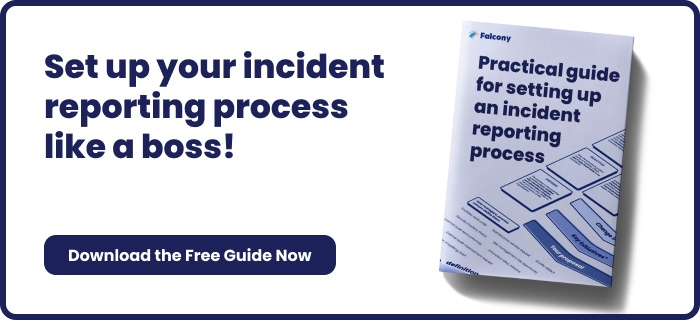What is Zero Tolerance?
Zero tolerance is a clear and unequivocal policy that organizations adopt to address various forms of misconduct, including harassment, bribery, discrimination, and more.
This approach leaves no room for ambiguity, making it abundantly clear that such behaviors are not tolerated under any circumstances. In this blog, we'll delve into what zero tolerance means and why it's crucial in today's workplaces and society.
Understanding Zero Tolerance
Zero tolerance is a strict and unwavering stance taken by organizations, institutions, or governments against specific undesirable behaviors. It sends a powerful message that certain actions will not be tolerated, regardless of the circumstances or the individuals involved. While zero tolerance policies can cover a range of issues from substance abuse to violence, two common areas where this approach is widely applied are:
-
Zero Tolerance to Harassment: In the context of workplace harassment, zero tolerance means that any form of harassment, be it sexual, racial, or any other type, is completely unacceptable. Individuals who engage in harassment, regardless of their position within the organization, are subject to disciplinary action, which may include termination.
-
Zero Tolerance to Bribery and Corruption: In the realm of business ethics, zero tolerance is applied to bribery and corruption. It means that organizations will not engage in, condone, or tolerate any form of bribery or corrupt practices, whether in their domestic or international operations. Violations can result in severe legal consequences and reputational damage.
Reasons for Implementing Zero Tolerance
-
Protecting Employees: Zero tolerance to harassment ensures that employees are protected from hostile or abusive environments, promoting psychological safety and well-being in the workplace.
-
Promoting Fairness: By adopting a zero tolerance stance against discrimination, organizations aim to create a level playing field where all employees are treated fairly and equally.
-
Legal and Regulatory Compliance: Many jurisdictions require organizations to have anti-harassment and anti-bribery policies in place to comply with labor laws and anti-corruption legislation.
-
Preserving Reputation: Organizations that actively enforce zero tolerance policies demonstrate their commitment to ethical behavior and social responsibility, safeguarding their reputation.
-
Preventing Future Incidents: The strict consequences associated with zero tolerance serve as a deterrent, discouraging individuals from engaging in inappropriate behavior.
Challenges and Considerations
While zero tolerance policies are valuable, they also come with some challenges:
-
Consistency: Ensuring consistent enforcement of zero tolerance policies can be challenging, as individual circumstances may vary.
-
Due Process: Organizations must strike a balance between zero tolerance and providing individuals with a fair and thorough review process in case of allegations.
-
Education and Training: Properly educating employees about what constitutes unacceptable behavior and providing training on reporting mechanisms is crucial.
Conclusion
Zero tolerance is a powerful and necessary approach to address misconduct in various contexts, such as harassment and bribery. It underscores an organization's commitment to maintaining a safe, fair, and ethical environment for its members. By implementing and enforcing zero tolerance policies consistently and transparently, organizations can protect their employees, uphold their reputation, and contribute to a culture of respect and integrity in the workplace and society as a whole.
Are you looking for a tool to report incidents or any other issues in your organisation? Falcony | Observe ticks all the boxes for incident management, is easy to customise, enables real dialogue and is a lot more.
We are building the world's first operational involvement platform. Our mission is to make the process of finding, sharing, fixing and learning from issues and observations as easy as thinking about them and as rewarding as being remembered for them.
By doing this, we are making work more meaningful for all parties involved.
More information at falcony.io.

Related posts
The Goal of Zero Accident (Zero Injury) Strategy
In the realm of workplace safety, the concept of achieving zero accidents or zero injuries may seem...
How to Keep Track of Safety Risks
Staying ahead of potential risks is paramount to ensuring the well-being of employees and the...
How valuable is just one safety observation?
In the world of workplace safety, every observation counts. Even a single safety observation can be...





